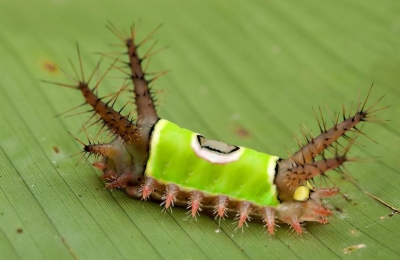
Scientists have sounded alarm over the rapid decline in insect population. In a series of papers published in the latest Proceedings of the National Academy of Sciences, scientists have pointed out how human activities are posing multi-dimensional risks to the insect population. The threats include deforestation, climate change, invasive species, pesticide use, habitat loss, pollution, forest fire, urbanisation and light pollution. On an average, the decline in insect abundance is estimated to be around 1-2% per year or 10-20% per decade. These losses are seen in all continents.
Why is this a cause for concern?
Insects are useful to humankind and the environment in a number of ways. They pollinate crops we rely on for food, keep pests in check, and recycle nutrients in the soil. They have been doing many other vital ecological processes for millions of years that it would be hard to imagine a world without them. In this Eco-logical, let’s take a look at some of these beneficial insects.
Bees
Bees pollinate a third of everything we consume. These include crops, fruits, vegetables, nuts, coffee, tea, and plants such as sunflowers that are turned into oil. Crops grown as fodder for livestock are pollinated by bees. Bees play a crucial role in sustaining biodiversity. Many flowering plants depend on bees for pollination. Without bees, even birds and animals that depend on plants for food will suffer.
Honeybees, a bee species, have the distinction of being the only insect that produces a food consumed by humans. Humans also use beewax, secreted by the insects to build the honeycombs, to make candles and lubricants.
Ladybugs
Ladybugs help humans by keeping a check on pests that destroy crops. Ladybugs have a voracious appetite. They consume plant-eating insects such as aphids, spider mites and mealybugs and in doing so they help protect crops.
Ladybugs lay hundreds of eggs in the colonies of pests, and when the eggs hatch, the larvae begin to feed on the pest insects. Farmers use ladybugs for biological pest managements. This way, the bugs help reduce the use of harmful pesticides.
Praying mantises, green lacewings and dragonflies too help humans in a similar fashion. These insect eat moths, mosquitoes, roaches, flies and many other insects considered pests by humans.
Dung beetles
Have you seen a dung beetle? They have a dark, round body with hard, protective covers and they are mighty recyclers. As the name suggests, their diet is dung – yes, animal and human faeces. They actually feed on the food that pass through an animal’s body undigested. While larvae eat the solid poop, the adult beetles generally suck up the nutritious moisture from the dung. They store their food underground. By burying the dung, the beetles loosen and nourish the soil and help control fly populations. If not for such decomposers, the world would be a barren, smelly landscape filled with flies.
Other decomposer insects such as carrion beetle play a significant role of eliminating dead or rotten bodies of plant or animals from the environment by feeding on them. Some of the other carrion feeders include ants, mites, wasps and fly larvae (maggots).
Butterflies and moths
Besides being a vital element of the food chain- as pollinators and as prey for birds, bats and other insectivorous animals – butterflies and moths are important to humans for their aesthetic value. Butterflies are among the most appealing creatures in Nature, with colours and ornate patterns that are enjoyed by humans. They inspire art and literature. In some cultures, butterflies are portrayed as symbols of souls, freedom, love and peace. Other insects groups represented in art include bees, beetles, grasshoppers, and dragonflies.
Insect as food
Many species of insects are known worldwide to be part of human diet. Some important groups include grasshoppers, caterpillars, beetle grubs, winged termites, bees, worms, ant brood, cicadas, and a variety of aquatic insects. Scientific research has shown that edible insects are a very rich source of protein and other nutrients. Eating insects can, in fact, help fight hunger and food insecurity.
Picture Credit : Google

